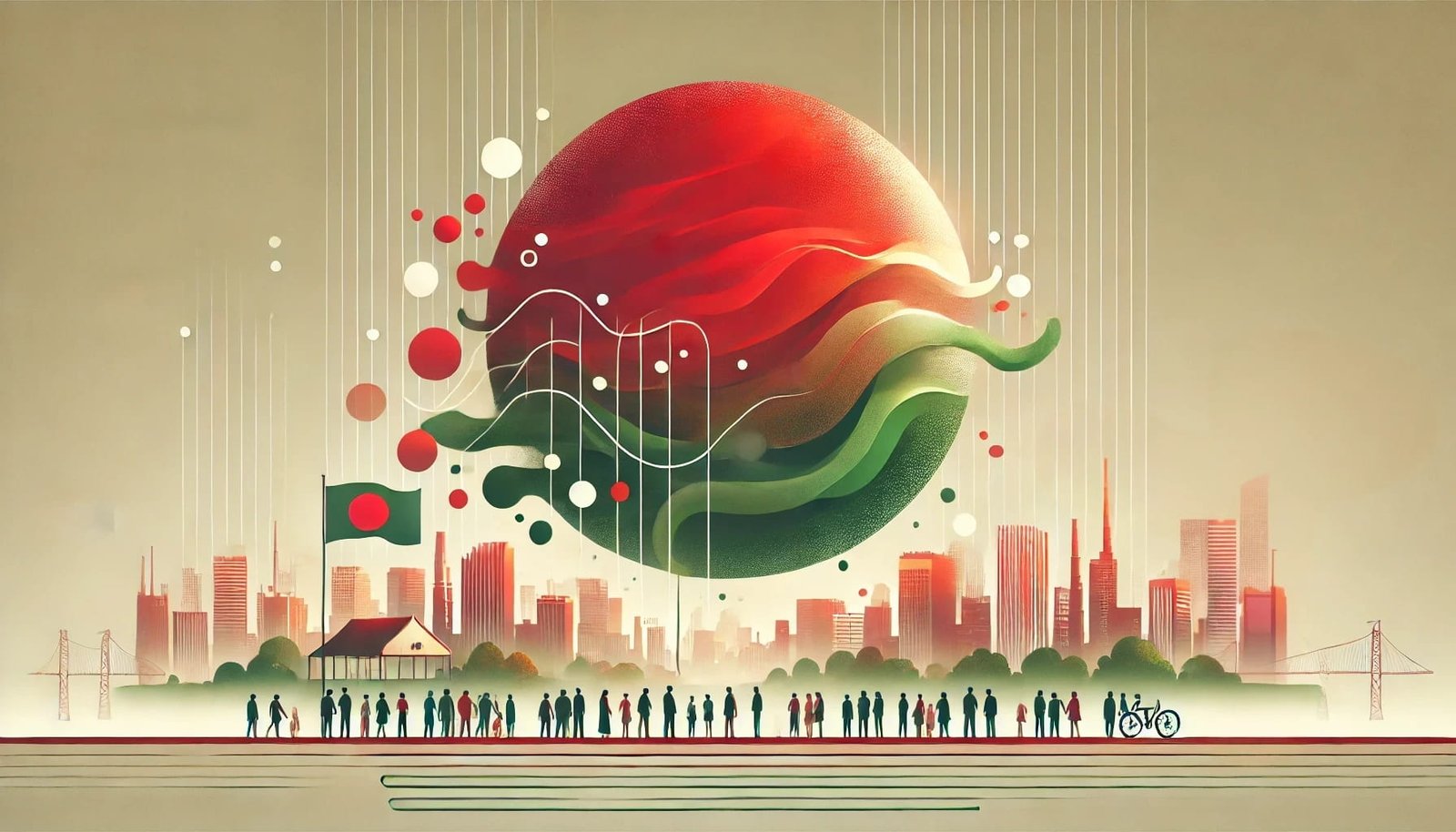


For too long, politics in Bangladesh has been a closed circle, controlled by the few and disconnected from the aspirations of the many. Yet, the energy of the July Uprising presents a historic opportunity: to transform politics from a system of patronage and control into a true engine of national progress. The United States-Bangladesh Unity Initiative (UBUI) believes that structural reforms can restore integrity to governance, attract capable leadership, and empower a new generation of changemakers.
The question before us is simple: Will Bangladesh seize this moment for meaningful reform, or will it allow the same cycles of corruption and stagnation to persist? The July Uprising was not just about resisting the old—it was about demanding something new, something better. Political parties across the spectrum must recognize this shift and respond with action, not just rhetoric.
Politics should be a calling for those driven by a vision for progress. Instead, it has become synonymous with corruption, nepotism, and self-preservation. Many of Bangladesh’s brightest minds—engineers, economists, business leaders—avoid political engagement, fearing that participation means compromising their integrity.
This aversion is not unfounded. Political power has too often been wielded as a tool for personal gain rather than public service. The result? A system where financial muscle outweighs merit, and where leadership is dictated by patronage rather than principles.

This must change. Every political party in Bangladesh must embrace reform to build a system that attracts and retains the best minds for the nation’s future. However, meaningful reform is complex and requires a sustained, inclusive dialogue that acknowledges the challenges of implementation.
One of the deepest structural issues in Bangladesh’s political landscape is the entanglement between party loyalty and economic survival. Why must livelihoods depend on party affiliation? Why are political parties acting as de facto employment agencies?
A healthy democracy requires a political system that is voluntary for supporters and professionalized for activists. Instead, the current model fosters dependency, limiting economic freedom and forcing millions into cycles of political obligation rather than free will.
The financing of political parties in Bangladesh remains shrouded in secrecy. Who funds them? How are these funds allocated? The lack of transparency breeds corruption, fuels conspiracy theories, and erodes public trust in governance.
To restore trust, political financing must be strictly regulated. Clear and enforceable laws must ensure that political donations are publicly disclosed, sources of funding are legitimate, and all campaign expenditures are audited by independent watchdogs. This would bring Bangladesh in line with best practices in democratic governance worldwide.
If democracy is to thrive in Bangladesh, it must first take root within political parties. Today, blind allegiance to party figures and top-down decision-making stifle fresh ideas, suppress debate, and prevent a new generation of leaders from emerging.

Bangladesh is a country of young, dynamic minds. The youth have shown they are ready to lead. Political parties must now make space for them—not just as campaign workers, but as decision-makers. Internal party elections should be transparent, competitive, and free from coercion to ensure that leadership transitions are merit-based rather than dictated by family ties or patronage.
Real change is never easy. Political parties must embrace reform, but so too must citizens, businesses, and civil society. The status quo benefits those who resist change, but progress is not just the responsibility of a few—it belongs to all of us.

Bangladesh’s political landscape can no longer be a place of exclusion, corruption, and power for its own sake. It must become a space for service, leadership, and the shared pursuit of national prosperity. Political parties must prove that they are willing to rise to this challenge.
1️⃣ Political Integrity: Independent Oversight & Accountability
Strong institutions must enforce financial transparency through mandatory asset disclosures and automated tracking. Anti-corruption agencies need prosecutorial powers, free from political influence, to ensure accountability. Blockchain and AI-driven monitoring can enhance transparency and reduce corruption.
Political parties must enforce term limits, ensure transparent leadership elections, and eliminate nepotism. Grassroots participation should be prioritized, with structured mentorship programs fostering new, diverse leadership.
Expanding private-sector jobs, attracting FDI, and fostering startups can break economic dependency on political loyalty. Streamlined policies and business incentives will promote a merit-based economy, reducing reliance on government favors.
Political literacy should be part of education, ensuring informed citizens. Independent media must be protected, promoting diverse perspectives. Peaceful protest rights must be upheld, allowing people to hold leaders accountable.
While these reforms must be led from within Bangladesh, international collaboration can play a vital role. The US has long supported democratic development and good governance worldwide, and Bangladesh can benefit from partnerships that provide technical expertise, anti-corruption frameworks, and support for economic initiatives that reduce dependence on political patronage. UBUI is committed to facilitating dialogue between policymakers, business leaders, and civil society in both countries to drive meaningful reform.
Bangladesh stands at a defining moment. The July Uprising was not just about removing a regime—it was a mandate for sweeping political reform. This is our chance to build a system that does not merely serve a privileged few but uplifts an entire nation. The question is not whether change is possible—it is whether we have the courage to demand it and the vision to implement it.
The impact of these reforms will not be measured by international attention but by the real improvements in the lives of Bangladeshi citizens—the ability to trust their leaders, to find opportunity without political allegiance, and to shape their own future.
Join UBUI. Be the movement. Drive the transformation. 🇧🇩🚀

Contributor: UBUI Board Members